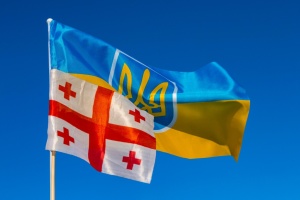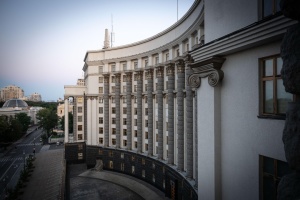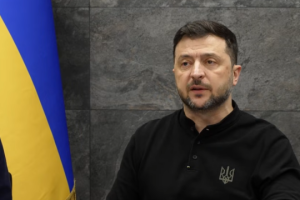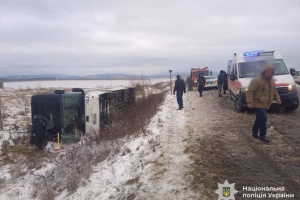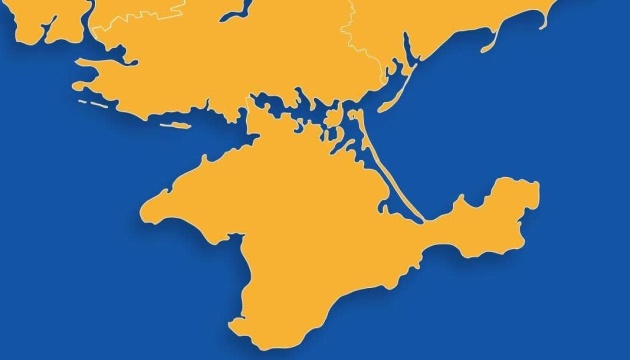
Russian propaganda in Crimea: Kremlin Media integrating peninsula into Russia’s political and cultural space
Currently, the pro-Russian media outlets in occupied Crimea are actively circulating the statements of Russian officials, spinning fake allegations of “war crimes of the Ukrainian army” and calling the upcoming liberation of the peninsula from Russian occupation “Ukraine’s attack on Crimea.”
The Center for Strategic Communication and Information Security has analyzed the publications in the Crimea-based pro-Kremlin media published throughout January 2023, using the Attack Index monitoring system. Here’s how pro-Kremlin media work to gain support among local residents: by discrediting Ukraine and integrating the peninsula into Russia’s political and cultural context.
“War crimes” of the Ukrainian army and “success” of Russian troops
Pro-Kremlin media in Crimea actively promote fake news about the “successes” of the Russian army and its alleged “might” and “invincibility.”
In contrast to the message about “successes” of the Russian army, the Ukrainian army is accused of “war crimes”. For instance, it is accused of “shelling civilians” in the temporarily occupied territories as the alleged civilian death toll is highlighted.
In addition, the analyzed materials contain the message about “Kyiv storing Western weapons in prohibited sites.” For example, in January, Sergey Naryshkin, Director of Russia’s Foreign Intelligence Service, accused the Ukrainian forces of “storing weapons at the nuclear power plant.”
Adviser to the head of the Ukrainian President’s Office Mykhailo Podolyak refuted the statement, saying that “Ukraine never stored any weapons at ‘nuclear power plants.’” In addition, Ukrainian NPPS are always open to international inspectors, including with the IAEA.
It was in fact Russia that captured the Zaporizhia NPP and is keeping its military there, falsely accusing Ukraine to justify own provocations.
“Ukraine sets up provocations targeting Russia”
In addition to the “dishonesty” of the Ukrainian army, the propaganda media in Crimea accuse Ukraine of “staging war crimes by the Russian army” in order to “blame Russia.”
“Ukraine’s attack on Crimea”
Propaganda media call the liberation of Crimea from Russian occupation “Ukraine’s attack on Crimea” and share threats voiced by Russian officials against Ukraine should it resort to an offensive.
Particularly interesting are publications attempting to integrate Crimea into Russia’s political and cultural space.
“Crimea residents help bring victory in the special military operation closer”
Another leading topic in the pro-Kremlin media in Crimea is the role of local residents in assisting the army in the so-called “special military operation.” Reports on Crimea residents as “war heroes of the special military operation” are being promoted.
Media “integration” of Crimea into the Russian cultural context
Pro-Kremlin Crimean media actively promote Russian holidays such as “Russian Military Glory Day” and “historical anniversaries” that the Kremlin uses to promote its narratives.
Attempts to “unite and put together” Crimea, “LPR/DPR” and other temporarily occupied territories of Ukraine
Crimean pro-Kremlin media also actively include into the agenda the so-called “LPR/DPR” and territories of Ukraine temporarily occupied after the full-scale invasion.
For example, they talk about “successful” examples for Crimea of the development of the health care system in Donbas and the “new life” of Ukrainians after coming under Russian control.
Ukraine’s “Russophobic” policy
Ukraine’s policy against Russia is portrayed in the pro-Kremlin Crimean media not as Ukraine’s natural response to the hostilities and crimes committed by the Russian Federation on the territory of Ukraine, but as “a Russophobic policy.”
This message is, in fact, rather dangerous as it instills the idea that “Crimea residents will suffer if they return to Ukraine.” This way, the narrative seeks to maintain hostile public attitude toward Ukraine.
Thus, the analysis indicated that the absolute majority of Crimean-based media publications are integrated into the Russian political and cultural space. The Kremlin is trying to sever any ties between Crimea and Ukraine, employing its traditional methods, including violence, outright lies, and manipulation.
Center for Strategic Communication and Information Security

